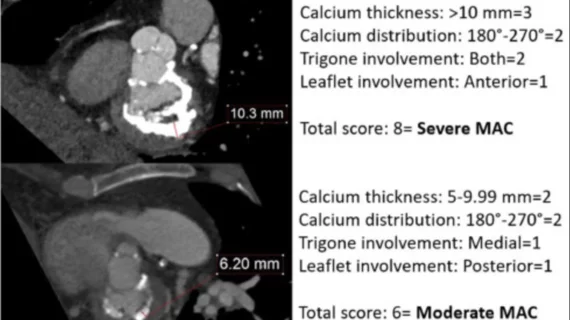TAVR safe and effective for patients presenting with mitral annular calcium
Mitral annular calcium (MAC) does not appear to have a negative effect on long-term transcatheter aortic valve replacement (TAVR) outcomes, according to new research published in the American Journal of Cardiology.[1]
“MAC is a chronic degenerative process, which is increasing in prevalence in an aging population,” wrote first author Hassan Mehmood Lak, MD, a cardiologist with Cleveland Clinic’s Sydell and Arnold Miller Family Heart Vascular and Thoracic Institute, and colleagues. “It is considered a marker of advanced cardiovascular disease and is an independent risk factor of cardiovascular mortality. However, there are limited data available regarding the impact of concomitant MAC on the outcomes of TAVR, because these patients were traditionally excluded from various pivotal TAVR trials.”
Lak et al. tracked retrospective data from 468 patients who underwent TAVR at the same high-volume facility in 2018. Fifty-eight percent of patients presented with MAC, which was determined using cardiac CT imaging. Patients in the MAC group had an older median age (81 years old vs. 79 years old) and higher body mass index (29.30 vs. 28.05). Patients younger than 18 years old were excluded altogether from the analysis.
Overall, there was no significant difference in all-cause one- or two-year mortality between patients with and without MAC. The myocardial infarction, stroke and major adverse cardiac and cerebrovascular event rates after one year were also comparable between these two groups.
MAC patients did present with higher new-onset left bundle branch block (LBBB) rates, the authors added, but no such differences were seen in complete atrioventricular block or pacemaker implantation rates.
“TAVR is a safe alternative for patients with severe aortic stenosis and concomitant MAC, with comparable outcomes to patients without MAC irrespective of its severity,” the authors concluded, adding that “larger prospective studies” are still required to confirm these findings.

